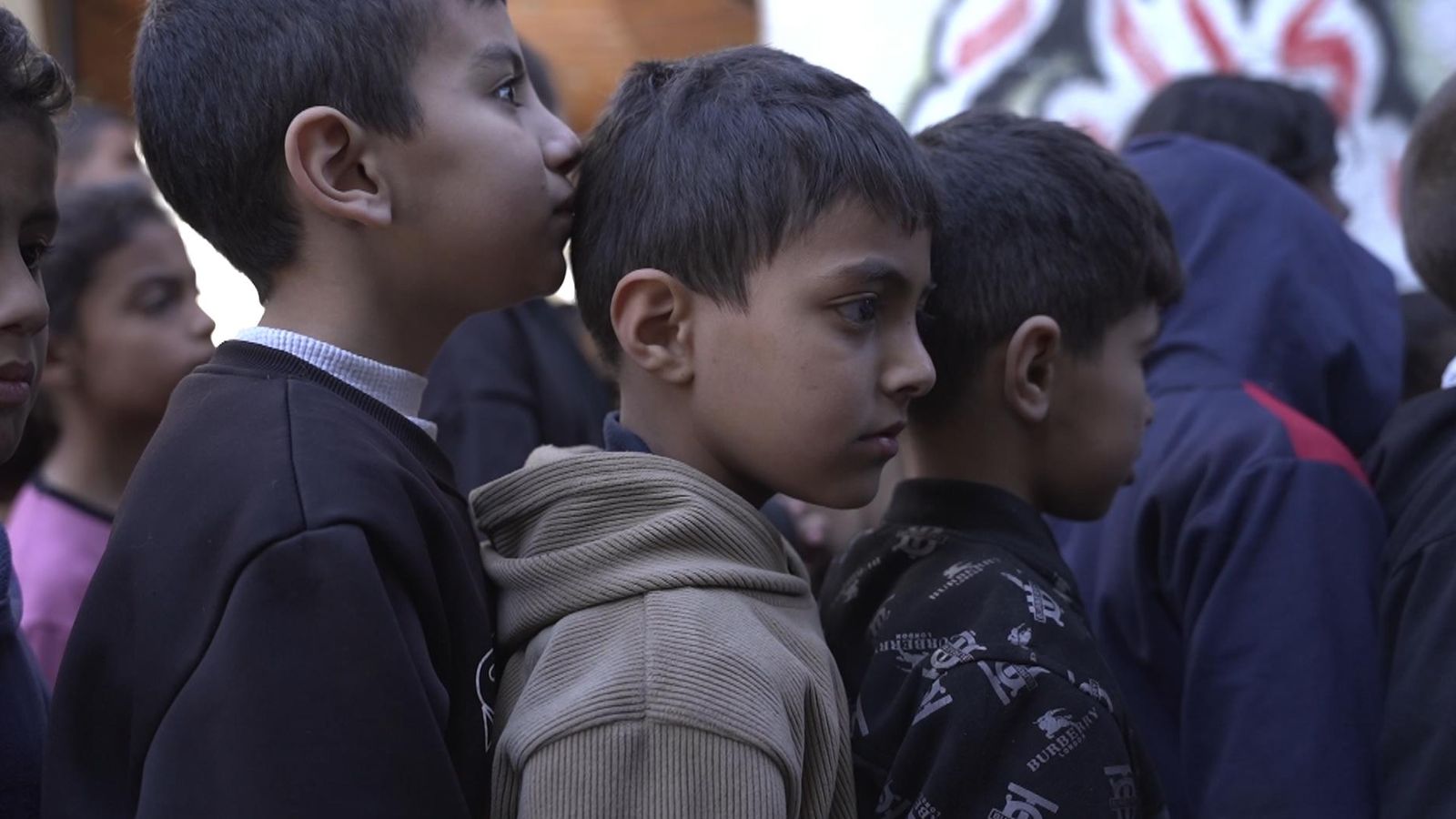In a narrow side street next to the market in Rafah, a group of children form a disorganised queue as a charity worker distributes some watery soup.
As the queue quickly multiplies, the children push, shove and fight with each other for a few spoonfuls of the liquid.
But there is not enough to go around.
“It’s a drop in the ocean,” says Ramzi, a local volunteer who relies on aid agencies for the donations he cooks on a makeshift, wood-fired stove.
After the death of seven aid workers in Israeli airstrikes on Monday evening, World Central Kitchen has suspended their operations. A number of other agencies have followed in their footsteps.
As a consequence, the humanitarian situation in Gaza is expected to deteriorate even further.
World Central Kitchen says it has supplied about 35 million hot meals and established more than 60 community kitchens since October.
Ramzi, for one, says he cannot cope with the number of people – young and old – seeking what sustenance he is able to offer.
“At the beginning, there were 100 to 200 kids,” he said. “Today it is 300. Tomorrow [it will be] 350. The day after 400.
“There is a horrifying increase in the number of kids. Not only kids, but you also find their teachers, doctors, the engineers…
“The volume of people during food distribution hour is unimaginable.”
The weary-looking charity worker is not the only one now worrying about mass starvation.
Read more:
UK breaching international law by arming Israel, Sunak warned
Gaza’s morgue network has effectively collapsed
Families of UK aid workers killed by Israel ‘heartbroken’
‘Imminent famine’
A report from a cluster of international organisations known as the Integrated Food Security Phase Classification (IPC) has outlined a devastating situation – with one half of the population in Gaza looking set to face catastrophic levels of hunger and starvation between now and July.
The situation is particularly worrying in northern Gaza, where the IPC has said famine is imminent. Israel has separated the north from the south using a military corridor with little more than a trickle of aid flowing northwards.
Israel says that it is working to facilitate more humanitarian assistance but argues that it is not responsible for distributing it on the ground.
‘I am not getting any of the aid’
Father of eight Abdul Abdulal told Sky News that he has seen little evidence of any assistance.
“I am not getting any of the aid,” he said. “I am not getting any. Whenever an aid lorry comes, I throw myself on it in order to get something for the children to eat.
“What am I going to do with myself? Dignity has been trampled upon.
“We’ve got to a stage where we can’t afford to buy food for our children.”
A catastrophe documented
The family fled Jabalia, in northern Gaza, in December when their home was destroyed in the fighting.
It is a catastrophe that he documented on his phone.
“Nothing is left in this room, everything melted down,” he said as he thumbed through the images. “See how they threw out all the furniture.”
Some 27 members of Mr Abdulal’s family have been killed and some of his relatives are still buried under the rubble, he told us.
His eldest son, who stayed in northern Gaza with his wife, has not been seen since the beginning of the war.
“I want to know whether he is alive or dead,” Mr Abdulal says. “I think about him all the time.”
Keep up with all the latest news from the UK and around the world by following Sky News
An obsession with finding enough food
However, if there is one preoccupation here, one single obsession in this sprawling camp: it is food.
Mr Abdulal’s children looked tired and drained.
When they are able to summon the energy, they look for tins of beans and peas when they are distributed by the aid agencies – or jostle for water when trucks make deliveries to the camp.
Be the first to get Breaking News
Install the Sky News app for free
It is a humiliating existence for a man who accepts that he is no longer able to feed his children.
“At the end of the day you either live or you die, but famine, being poor, that’s worse than war. It’s a psychological war.”








